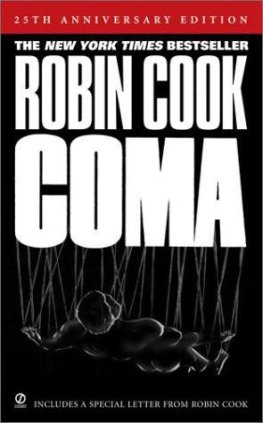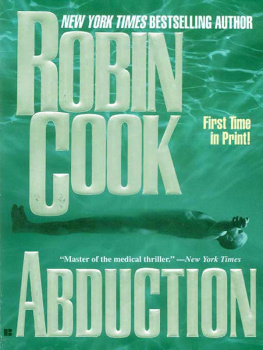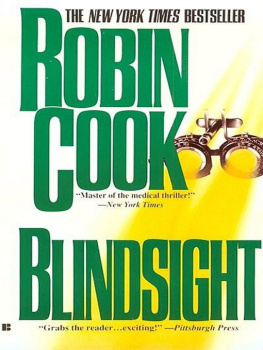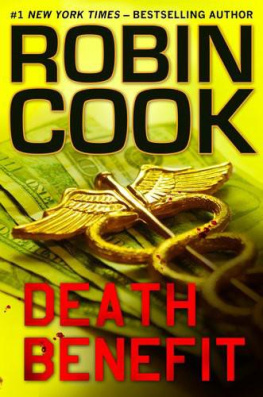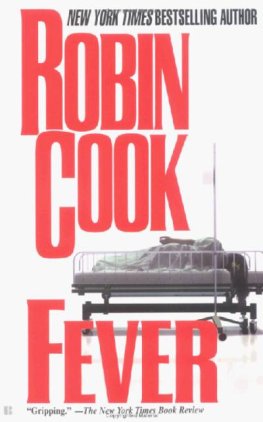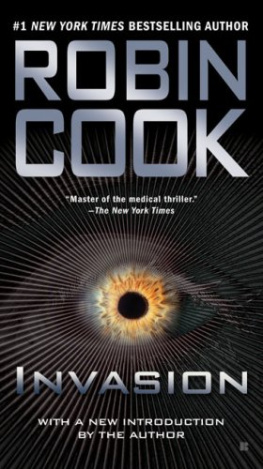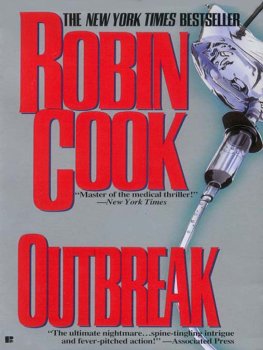
This Book Is Dedicated to
Those Families Who Have Suffered
from the Scourge of E. Coli 0157:H7
and Other Food-Borne Illnesses.
I would like to acknowledge:
Bruce Berman, for his suggestions at the outset of this project as well as his insightful critique of the outline for Toxin; Nikki Fox, for sharing with me her extensive research on food-borne illness; Ron Savenor, for helping me overcome a particular barrier in my own research; and Jean Reeds, for her invaluable comments and suggestions on the work in progress.
January 9th
The sky was an immense, inverted bowl of gray clouds that arched from one flat horizon to the other. It was the kind of sky that hovered over the American Midwest. In the summer the ground would be awash in a sea of corn and soybeans. But now in the depths of winter it was a frozen stubble with patches of dirty snow and a few lonely, leafless, skeletonized trees.
The leaden clouds had excreted a lazy drizzle all day more of a mist than a rain. But by two o'clock the precipitation had abated and the single functioning windshield wiper of the aged, recycled UPS delivery van was no longer necessary as the vehicle negotiated a rutted dirt road.
"What did old man Oakly say?" Bart Winslow asked. Bart was the driver of the van. He and his partner, Willy Brown, sitting in the passenger seat, were in their fifties and could have been mistaken for brothers. Their creased, leather faces bore witness to a lifetime of labor on the farm, both were dressed in soiled and tattered overalls over layered sweatshirts and both were chewing tobacco.
"Benton Oakly didn't say much," Willy answered after wiping some spittle off his chin with the back of his hand, "Just said one of his cows woke up sick."
"How sick?" Bart asked.
"I guess sick enough to be a downer," Willy said, "Has the runs bad."
Bart and Willy had evolved over the years from mere farmhands to become what the local farmers referred to as 4-D men. It was their job to go around and pick up dead, dying, diseased, and disabled farm animals, particularly cows, and take them to the rendering plant. It wasn't a coveted job, but it suited Bart and Willy just fine.
The van turned at a rusted mailbox and followed a muddy road that ran between barbed-wire fences. A mile beyond the road opened up at a small farm. Bart drove the van up to the barn, made a three-point turn, and backed the vehicle to the open barn door. By the time Bart and Willy had climbed from the truck, Benton Oakly had appeared.
"Afternoon," Benton said. He was as laconic as Bart and Willy. Something about the landscape made people not want to talk. Benton was a tall, thin man with bad teeth. He kept his distance from Ban and Willy as did his dog, Shep. Shep had been barking until Ban and Willy got out of the truck. With his nose twitching from the scent of death, Shep shrank back behind his master.
"In the barn," Benton said. He motioned with his hand before leading his visitors into the depths of the dark barn. Stopping at a pen, he pointed over the rail.
Bart and Willy ventured to the edge of the pen and looked in. They wrinkled their noses. The area reeked of fresh manure.
Within the pen an obviously sick cow was lying in its own diarrhea. Raising its wobbly head, she gazed back at Bart and Willy. One of her pupils was the color of gray marble.
"What's with the eye?" Willy asked.
"Been that way since she was a calf," Benton said. "Got poked or something."
"She only been sick since this morning?" Bart asked.
"That's right," Benton said. "But she's been down on her milk for almost a month. I want her out'a here before my other cows get the runs."
"We'll take her, all right," Bart said.
"Is it still twenty-five bucks to haul her to the renderer?" Benton asked.
"Yup," Willy said. "But can we hose her off before putting her in the truck?"
"Be my guest," Benton said. "There's hose right over there against the wall."
Willy went to get the hose while Bart opened the gate to the pen. Trying to be careful where he put his feet, Bart gave the cow a few swats on its rump. Reluctantly it rose to its feet and tottered.
Willy came back with the hose and squirted the cow until it looked relatively clean. Then he and Bart got behind the cow and coaxed it out of the pen. With added help from Benton they got the animal outside and into the van. Willy closed the truck's back door.
"What'd ya got in there about four head?" Benton asked.
"Yup," Willy said. "All four dead this morning. There's some kind of infection over at the Silverton Farm."
"Criminy," Benton said with alarm. He slapped a few wrinkled greenbacks into Bart's palm. "Get them the hell off my spread."
Bart and Willy both spat as they rounded their respective sides of the truck. The tired engine let out a belch of black smoke before propelling the vehicle out of the farm.
As was their habit Bart and Willy didn't speak again until the truck reached the pavement of the county road. Bart accelerated and finally got the van into fourth gear.
"You thinkin' what I'm thinkin'?" Bart asked.
"I imagine," Willy said. "That Cow didn't look half bad after we hosed her down. Hell, it looks a mite better'n that one we sold to the slaughterhouse last week."
"And it can stand and even walk a little," Bart said.
Willy glanced at his watch. "Just about the right time too."
The 4-D men did not speak again until they pulled off the county road onto the track that ran around a low-slung, almost windowless, large commercial building. A billboard-sized sign said: HIGGINS AND HANCOCK. At the rear of the building was an empty stockyard that was a sea of trampled mud.
"You wait here' Bart said, as he pulled to a stop near the chute that lead from the stockyard into the factory.
Bart got out of the van and disappeared down the chute. Willy got out and leaned up against the van's rear door. Five minutes later Bart reappeared with two burly men dressed in bloodstained long white coats, yellow plastic construction helmets, and yellow mid-calf rubber boots. Both sported a nametag. The heavier man's nametag said: JED STREET, SUPERVISOR. The other man's said: SALVATORE MORANO, QUALITY CONTROL. Jed had a clipboard.
Bart gestured to Willy, and Willy unlatched the van's rear door and opened it. Salvatore and Jed covered their noses and peered inside. The sick cow raised its head.
Jed turned to Bart. "Can the animal stand?"
"Sure can. She can even walk a little."
Jed looked at Salvatore. "What do you think, Sal?"
"Where's the SME inspector?" Salvatore asked.
"Where do you think?" Jed said. "He's in the locker room, where he goes as soon as he thinks the last animal has come through."
Salvatore lifted the tail of his white coat to get at a two-way radio attached to his belt. He switched it on and held it up to his lips. " Gary, did that last combo bin that's going to Mercer Meats get filled?"
The answer came back accompanied by static: "Almost."
"Okay," Salvatore said into the radio. "We're sending in one more animal. That will more than do it."
Salvatore switched off his radio and looked at Jed. "Let's do it."
Jed nodded and turned to Bart. "Looks like you got a deal, but as I said, we'll only pay fifty bucks."
Bart nodded. "Fifty bucks is okay."
While Bart and Willy climbed into the back of the van, Salvatore walked back down the chute. From his pocket he pulled out a couple of earplugs that he put in his ears. As he entered the slaughterhouse, his mind was no longer concerned about the sick cow. He was concerned about the myriad forms he still had to fill out before he could think of going home,
Next page

